
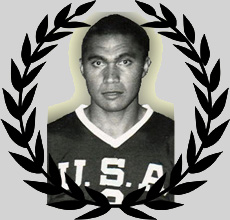
Pete was a phenomenal volleyball player who is officially recognized by USA Volleyball as an "All-Time Great". He was selected to the All-American team in ten consecutive USAV National Championships and was chosen Most Valuable Player in 1965. He was named captain of the 1964 USA Olympic volleyball team and was again chosen to captain the 1968 Olympic team but declined because he wanted someone else to have the honor. His international representation of the United States included playing in the Pan-American Games where he helped the USA win silver in 1963 and gold in 1967. He is a member of the International Volleyball Hall of Fame, the Hawaii Hall of Fame, and the NAIA Hall of Fame.
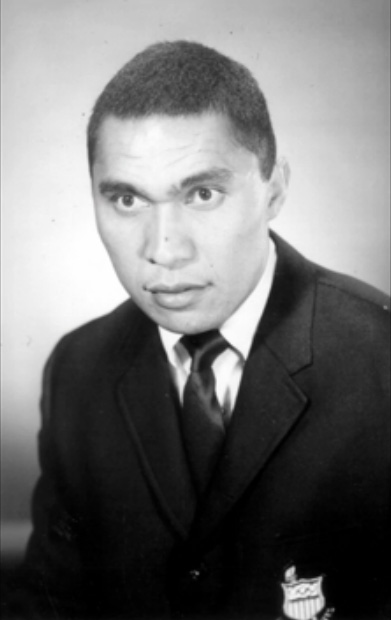
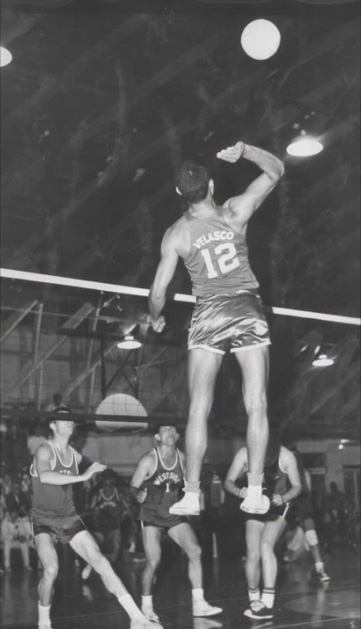
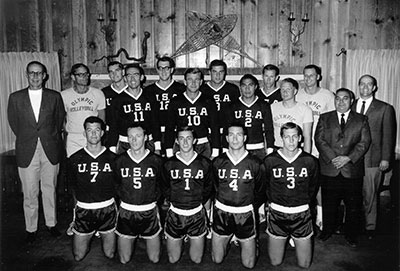
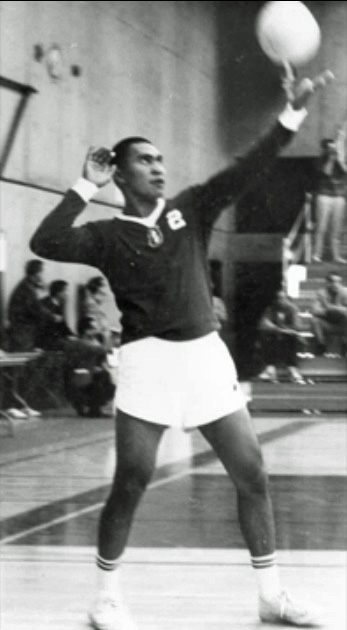
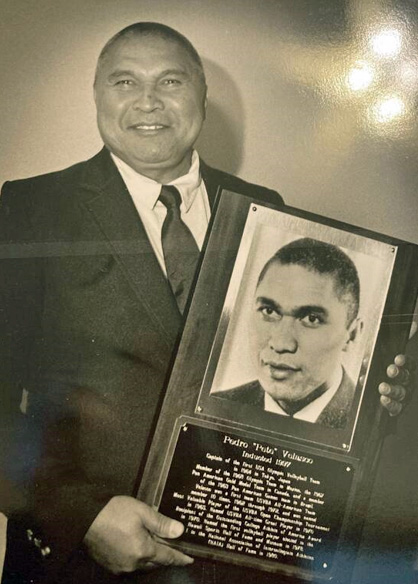
Pete was born and raised in Papakolea, in a home right behind the Papakolea District Park's gym, where he naturally spent many hours. He attended Kamehameha School when there was only one campus, what is now known as Kamehameha Schools-Kapalama. He played basketball in high school and confided that his ability to shoot the ball and affinity for doing so, made him the first "Pistol" Pete, before a guy named Maravich ever came along. He sometimes would play on the courts at Lanakila District Park where he would watch the Iolani School football team practice and was impressed by Iolani's legendary coach, the Rev. Kenneth A. Bray, such that he would later incorporate some of Bray's tenets in his own coaching. Pete's high school basketball skills were enough to earn him a full-ride scholarship to Division I Denver University where, as a freshman, he earned the starting point guard position, beating out a senior. Alas, as Pete himself succinctly said, "I found that I was ready for life, but not for school" so he returned home after his first year there. Basketball's loss became volleyball's gain.
When Pete returned to Honolulu he found that he excelled at volleyball, first with the Central YMCA volleyball team, then with the Outrigger Canoe Club's volleyball team, beginning his outstanding career in the national and international spotlight. He also enjoyed playing on the sand courts at Outrigger and was renowned for once spiking a ball with so much force that it hit the sand and still bounced over a coconut tree! With that kind of power and his leaping ability, Pete began his volleyball career as a spiker but quickly adapted when asked to set for the Olympic team. He had soft hands and could set any ball anywhere he wanted and, with his ability to hit equally well with either hand, was devastating when he chose to spike balls passed close to the net.
Pete decided in 1968 to end the globetrotting part of his career, so returned home to his wife Adelaide and their seven children. Adele always supported Pete because she never wanted him to wonder "what if?" Their seven children all excelled at volleyball and their four sons and three daughters helped Roosevelt High School to win both the boys and girls Hawaii State volleyball championship for two consecutive years with the 1979 boys championship being the last time a champion was not from the ILH. Pete decided that he was then ready for school so took his bachelors degree from then Church College of Hawaii and earned his masters from BYU-Provo.

In 1972, Mr. P allowed men to join Lokahi and, with his sons forming the nucleus of the Lokahi AA team, they eventually won the prestigious Haili Invitational Volleyball Tournament, emblematic of the top team in the state, under his coaching. Mr. P continued to set high standards for his players and once left the gym when one of his mens B teams wasn't playing up to his standards in a regional championship tourney. Appropriately motivated, those men went on to win the championship and when their captain later proudly gave Mr. P the trophy, his only comment was "Well, we don't have to play B anymore" and the Lokahi men never did.
Lokahi was mainly an adult club, with the occasional junior member playing with the adults, until 2011 when a group of young girls were brought to Lokahi by their grade-school coaches who had played on Lokahi's womens teams. Those girls won their first-ever set at the start of an 11U league, then continued improving to finish fifth out of 16 teams. The next season, their nucleus returned to form Lokahi's first-ever Aloha Region junior team and stormed to a third-place finish in the 12U gold regionals, then went undefeated to win Kauai's Hoʻoikaika Tournament. Watching one of that team's 12U tournaments, Mr. P gave their coach a rare "You're doing good" compliment. Mr. P's system works at all levels.


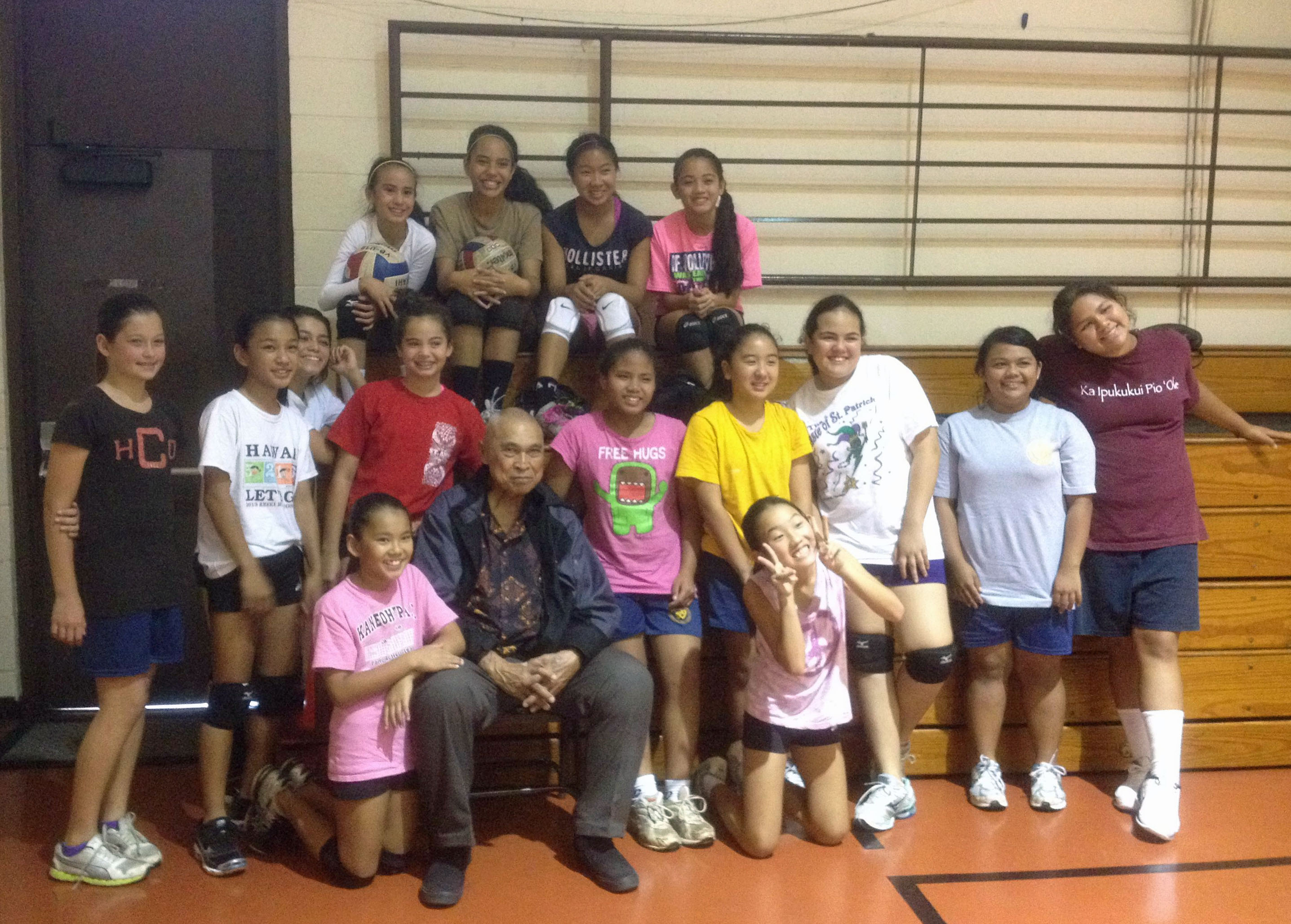
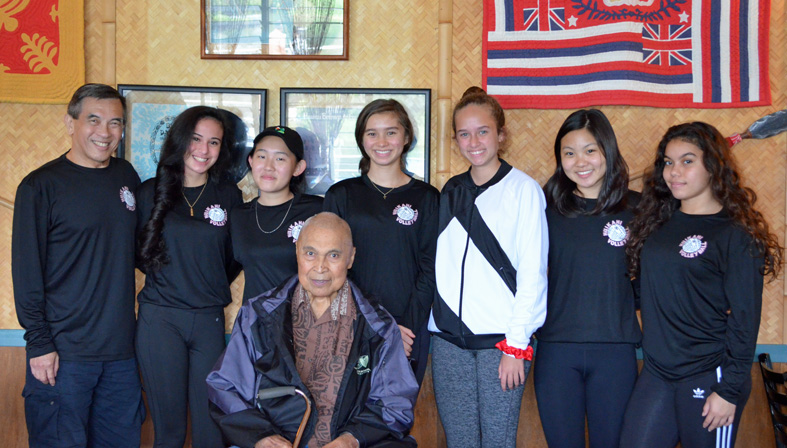

Mr. P always remembered the lessons taught him by his coach, Herbert Suganuma, and Mr. P said he lived his life by seven words: DEDICATION, COMMITMENT, and SACRIFICE - which lead to success; CREATIVITY and INNOVATION - which maintain success; HUMILITY and COMPATIBILITY - which perpetuate success. One could do worse than to follow his example.
The foregoing are some of Coach Courtland's recollections from the several decades he played for, coached under, and knew Mr. P. Note that right-clicking on the photos will enable opening a separate window with a larger version.